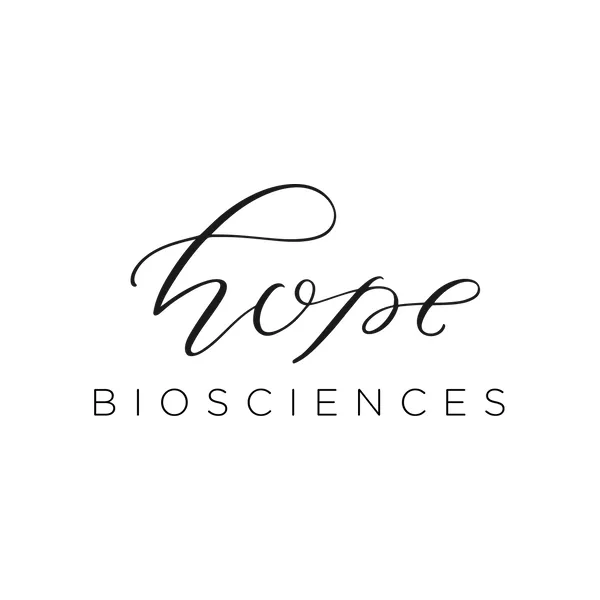
Hope Biosciences Receives FDA RMAT Designation for Stem Cell Therapy in Relapsing-Remitting Multiple Sclerosis
Hope Biosciences, a leading U.S.-based stem cell banking and cellular therapeutics manufacturer, has announced a major regulatory milestone that could reshape the future of treatment for multiple sclerosis (MS). The U.S. Food and Drug Administration (FDA) has granted the company’s adipose-derived mesenchymal stem cells (HB-adMSCs) Regenerative Medicine Advanced Therapy (RMAT) designation for use in patients living with relapsing-remitting multiple sclerosis (RRMS).
The designation was awarded on the basis of promising clinical data generated through research led by the Hope Biosciences Research Foundation (HBRF), a non-profit clinical research organization headquartered in Sugar Land, Texas.
For a therapy to qualify for RMAT designation, it must meet stringent requirements, including providing preliminary clinical evidence of addressing a serious or life-threatening disease for which significant unmet medical needs remain. The designation signals that HB-adMSCs have shown meaningful potential to improve outcomes where existing treatments have not fully succeeded. Importantly, RMAT status provides opportunities for closer engagement with the FDA, eligibility for priority review or accelerated approval pathways, and greater flexibility in clinical development planning.
A Landmark First for Multiple Sclerosis Therapies
The FDA’s decision carries particular weight because this marks the first-ever RMAT designation for a therapy targeting multiple sclerosis. Multiple sclerosis is a chronic, often debilitating autoimmune disorder in which the body’s immune system mistakenly attacks myelin, the protective sheath surrounding nerve fibers. Damage to this sheath interferes with the normal flow of electrical signals in the nervous system, leading to a wide range of neurological symptoms.
Relapsing-remitting multiple sclerosis, the most common subtype, is characterized by unpredictable flare-ups (relapses) of symptoms followed by periods of partial or complete recovery (remission). Over time, however, many patients accumulate neurological damage and disability even during remission phases.
Donna Chang, CEO of Hope Biosciences, emphasized the significance of the FDA’s recognition:
“Receiving the first RMAT designation for multiple sclerosis is a tremendous acknowledgment of our technology’s potential to impact the world of debilitating autoimmune conditions. HBRF has been an instrumental partner, leveraging their unparalleled expertise in cell therapy as well as their proven ability to deliver compassionate care tailored to our community’s needs through pioneering, patient-centered protocols. It is a privilege to collaborate with them in advancing hope for patients.”
The recognition underscores the FDA’s belief that HB-adMSCs may provide a novel mechanism of action and an innovative approach to MS treatment.
The Clinical Trial That Set the Stage
Hope Biosciences’ achievement follows positive top-line results from a Phase II clinical trial carried out by HBRF between 2023 and 2024. This trial was the first in the world to administer pure mesenchymal stem cells in high quantities through repeated dosing to MS patients.
- Study Identifier: NCT05116540
- Design: Randomized, double-blind, single-center
- Population: 24 participants with relapsing-remitting MS
- Duration: 32 weeks
- Intervention: Six intravenous infusions of 200 million HB-adMSCs each, totaling 1.2 billion cells
The trial’s primary endpoint was met successfully, demonstrating both feasibility and clinical benefit.
Dr. Ridhima Vij, Clinical Research Scientist at HBRF, explained the findings:
“The trial successfully met its primary endpoint, and the results clearly demonstrate that HB-adMSCs can be effective in a complex, variable condition like RRMS. There were statistically significant improvements in both physical and mental health for the treatment group compared to the placebo group, as measured by the MS Quality of Life-54 Instrument.”
The MS Quality of Life-54 Instrument is a multidimensional tool that assesses a broad range of factors—physical functioning, cognitive performance, pain, fatigue, mobility, sexual function, and mental health—providing a more complete picture of how therapies affect the daily lives of patients. According to Dr. Vij, the improvements observed were not marginal, but rather clinically meaningful, pointing to the therapy’s potential to reshape expectations for RRMS care.
Why Stem Cell Therapy Could Transform MS Treatment
Current MS therapies largely focus on slowing disease progression or reducing relapse frequency by suppressing immune activity. While effective in many patients, they come with significant limitations:
- They often do not reverse existing neurological damage.
- They can carry serious side effects due to long-term immune suppression.
- Some patients fail to respond adequately to available options.
Stem cell therapies, by contrast, offer a fundamentally different approach. Mesenchymal stem cells, like HB-adMSCs, are known for their immunomodulatory, anti-inflammatory, and regenerative properties. They may not only reduce autoimmune activity but also promote repair of damaged tissues.
For RRMS, this dual mechanism—calming the immune system while aiding regeneration—could represent a paradigm shift.
The Human and Economic Burden of MS
Globally, more than 2 million people live with MS, including about 400,000 in the United States. The condition often strikes adults in their 30s and 40s, disrupting careers, families, and daily functioning. Women are disproportionately affected, at nearly three times the rate of men.
The symptoms of MS vary depending on which nerves are damaged, but common manifestations include:
- Vision problems
- Difficulty walking or maintaining balance
- Numbness and tingling
- Cognitive impairment
- Chronic fatigue and pain
- Loss of bladder or bowel control
The unpredictability of relapses can add immense emotional strain, making MS one of the most psychologically taxing neurological conditions.

From an economic perspective, MS is among the most expensive chronic conditions to manage, second only to heart failure in lifetime costs. A single patient’s lifetime healthcare costs may approach $5 million, factoring in direct medical care, lost productivity, and long-term disability support.
A Step Toward Faster Regulatory Pathways
With RMAT designation secured, Hope Biosciences now gains access to regulatory tools designed to speed the development and approval of transformative therapies. The benefits of RMAT designation include:
- Increased interaction with FDA experts throughout development
- Guidance on efficient trial design to meet approval standards
- Eligibility for accelerated approval and priority review
- Potential for rolling submissions of a Biologics License Application (BLA)
Chang noted that Hope Biosciences intends to move quickly toward regulatory submissions:
“We are grateful to FDA for recognizing the tremendous need for development of new solutions for multiple sclerosis. We remain focused on getting treatment to people in need and will move rapidly to collaborate with FDA on advancing access, including filing our Biologics License Application.”
In addition, Hope Biosciences has been invited to participate in the FDA’s Chemistry, Manufacturing, and Controls (CMC) Development and Readiness Pilot program. This program helps innovative companies optimize their manufacturing processes to meet the rigorous quality standards required for biologics. For stem cell therapies, where scalability and consistency of production are significant hurdles, participation in this pilot could accelerate the company’s ability to reach patients.
Building on a Legacy of Innovation
Hope Biosciences has spent years establishing itself as a leader in adipose-derived mesenchymal stem cell banking and therapy. By focusing on pure, well-characterized stem cell populations and advancing large-scale manufacturing methods, the company has aimed to overcome traditional barriers in the cell therapy field.
The RMAT designation represents validation not only of the scientific potential of HB-adMSCs, but also of the company’s long-term strategy to bring safe, effective, and accessible regenerative medicine products to patients suffering from conditions with few solutions.
While the road to full FDA approval remains ahead, the recognition of HB-adMSCs as an RMAT therapy places Hope Biosciences at the forefront of a new wave of regenerative medicine. For the MS community—patients, caregivers, and clinicians alike—the possibility of a treatment that could not only stabilize but also improve neurological function is an unprecedented beacon of hope.
As Hope Biosciences prepares to engage in deeper discussions with the FDA and advances toward pivotal trials and potential commercialization, the broader field of neurology and autoimmune disease research will be watching closely.
If successful, HB-adMSCs may not only transform treatment for relapsing-remitting multiple sclerosis, but also open the door to broader applications of mesenchymal stem cell therapies across a spectrum of autoimmune and degenerative diseases.





